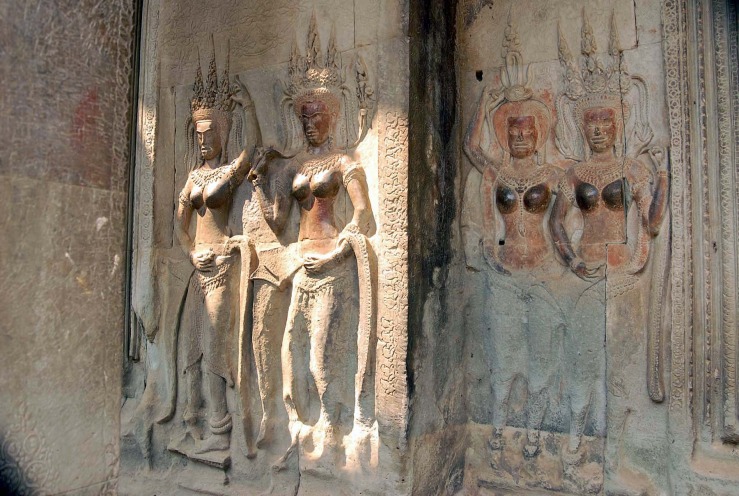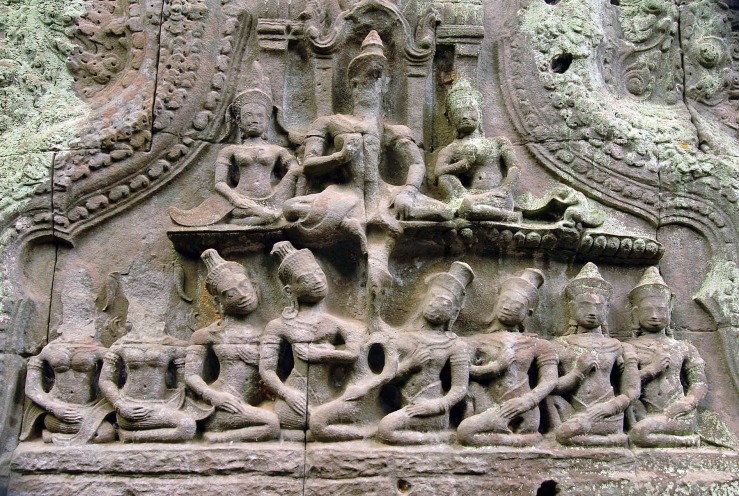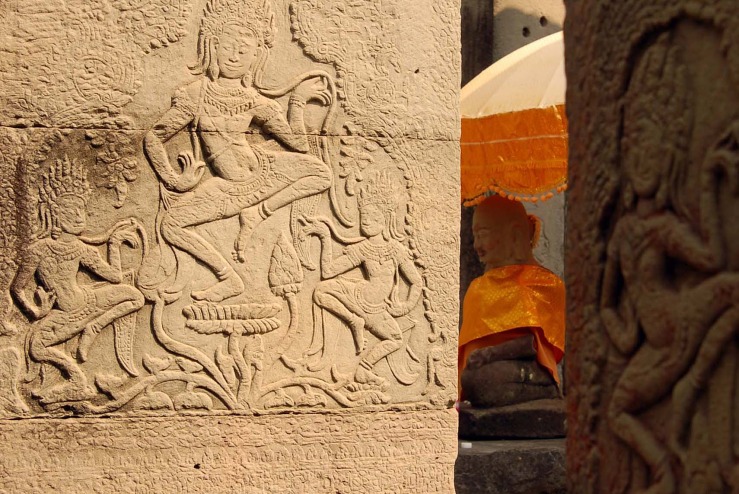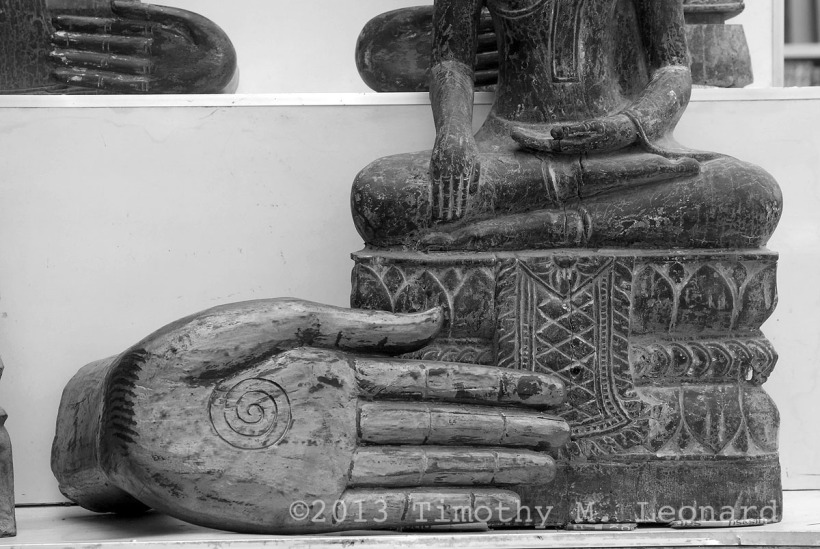Storyteller - Laos
I am big seven said an omniscient reliable Lao narrator in Vientiane.
Your life is a test. Test first lessons later. It isn’t a dress rehearsal. If it’s an actual life your invisible friend will protect you from ignorance and fear. Get to the verb.
My dad’s not very smart. It’s his DNA, a string theory of letters. Genetics. Gee. Net. Icks.
Let me give you a kind-hearted example of his stupidity. It's the rainy season. Slashing squalling delicious rain. Soft, cool, soothing. Like tears. Cry me a river.
Rain pours like honey. What’s dear old dad do? He washes his silver van in a downpour. Smart eh? Yeah, he’s trying to impress dry watchers with his intelligent hose running wealthy water over poor rain. Cleaning. He ignores me mostly.
It’s amazing what people do when they don’t have anything to do. Maybe it’s an innate creative instinct. Like milling around. I’ve learned there are three kinds of people in the world.
people who make things happen
people who watch people make things happen
people who don’t know what’s going on
My grandmother sits on our 1924 austere colonial dark brown balcony folding banana leaves for a ceremony.
Every day is a ceremony.
At dawn she walks to the muddy road near the Mekong and offers wandering Buddhist monks a handful of rice. She earns merit in this life. She burns incense at the family altar. She nurtures her shrinking garden after her son decided to plant a cement parking lot. What a clever little man.
Grandfather sits staring at rain collecting in pools.
Father’s very busy. He disappears for hours. Drinking beer with friends. Playing around with a secret squeeze in dark places. She’s starving for affection and cash. A poor girl from a poor family needs to make a living, poor thing.
My mom’s also smart. What’s the difference between smart and clever?
After the rain, when it’s dry and the smallest full moon of the year rises above the Mekong before a river festival filled with floating orange flowers and yellow flaming candles she burns all the plastic garbage. Burn baby burn. Light my fire.
It’s a sweet smell let me tell you. Like that Duvall character said in Apocalypse Now, I love the smell of napalm in the morning. Kind of like that smell. What’s the word? Acrid.
When she’s not burning plastic trash she sweeps. Broom music. Stone cold. She cooks. She pretends to be busy. She’s a baby delivery machine. What’s another mouth? In China I’m worth $3-5K on the stolen kid market. My sister would have been aborted.
Mom ignores me mostly. She’s busy doing her humble mother routine. Later, she squawks. She’s a soft kindlater.
People like parents and teachers and lazy humans love to pretend to be busy. I guess it gives their short life meaning.
Milling around is an art form with style. Hemingway had style. Fitzgerald had style and class.
Lao people are soft and gentle. We have good hearts. We are not as mercenary as the Vietnamese. We drift through your sensation, perception and consciousness with the speed and grace of a cosmic Lepidoptera.
The trick is to tolerate with kindness and patience, your great teacher, the bland empty-eyed star gazing hustlers. Bored after five minutes they lose interest and leave you be, zap, like a white zigzag lightning bolt. Gone.
Vietnamese plant rice.
Cambodians watch it grow.
Laotians hear it grow.
The kid continued, for cultural, historical, educational, environmental, emotional, intellectual and economic reasons milling around is a popular daily activity.
This unpleasant fact cannot be denied or ignored or forgotten like a missing leg.
I used to complain I had no shoes until I met a man with no feet.
This fact needs to be up front because it is a clear immediate danger and way of life.
Limited opportunities, unregulated population growth, substandard education, no medicine, no hope and inconclusive futures enhance milling around.
But what do I know? Milling kills time alleviating boredom, the dreaded lethargic tedious disease. Milling around kills the human spirit. No initiative. Period. How sweet. How charming. It’ll take another generation to get educated. Cambodia and Lao and Vietnam are alive with ghosts.
A human’s existence is one long perpetual distraction.
I’m too young to know much. I know what I don’t know. I don’t know what I don’t know. Anyway, I need to go and finish my school paper on developing moral character with social intelligence, grit, self-control, gratitude, optimism, and curiosity.
How do you build self-control and grit, asked a visitor to Earth.
Through failure and hardship, said the boy. There are two kinds of character.
What are they?
Moral character is fairness, generosity, and integrity.
Performance character is effort, diligence, and perseverance. Kids need challenges to grow. Like hardships and deprivation. Yeah, it’s trial and error and taking risks.
Thanks for the life lesson, said traveler. You are the future of Laos.
I have my junior philosopher’s badge, said the kid.







 Share Article
Share Article 



